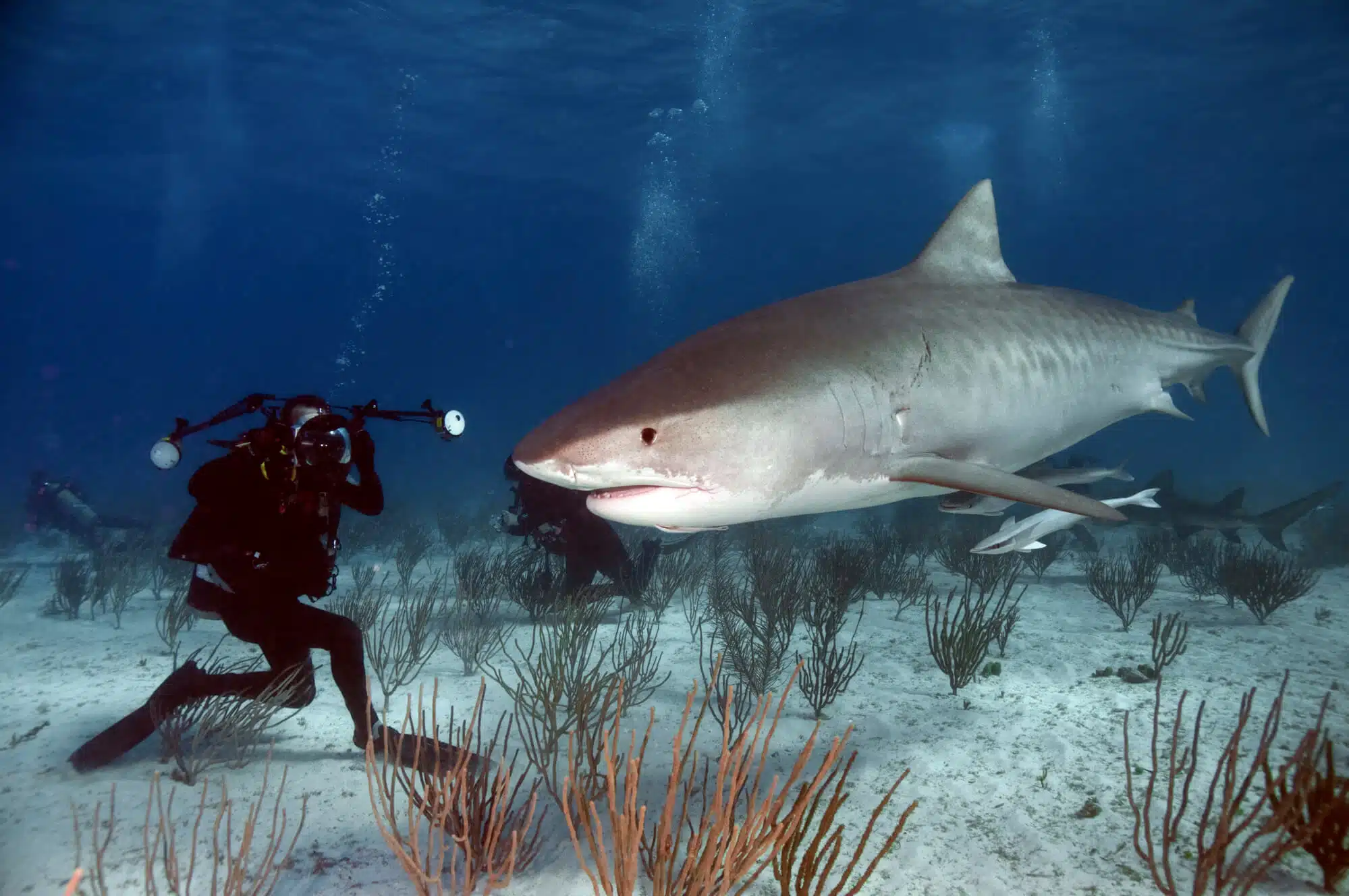Why do we think our nature is so bad? Why do we believe that constant warfare is a basic human drive?
for all episodes of the series
Why do we think our nature is so bad? Why do we believe that constant warfare is a basic human drive?
First, the study of physical reactions to stressful situations is traditionally done by men - and on males. Until recently, this research was done mainly on male rats, because the hormonal responses of the females were more difficult to monitor. Thus a bias was created in the interpretation of our biology. Men express stress differently than women. Stress hormones work in men in the form of "Fight or Flight", but the hormonal response to stressful situations on the part of most of the human race - that is, women - is "Tend and Befriend". Women perform better when cooperation based on attention or motivation is required. Men tend to be competitive. Women tend to create consensus.
Second, not only has biology been misrepresented because of the male bias, but so has history. For thousands of years history was written by men, to describe men and to glorify men. Back in Greece and Rome, historians tended to describe more the establishment of governmental entities, wars and revolutions, and less medical and scientific research, agriculture, technology, human societies and raising children. Only in the last decades did "history from below" begin to be written, the history of the lives of ordinary people. This is how the false impression is created that the history of the human race is wars and mass murders, and that the default of human behavior is conflict. Again - this is a wrong impression. This is not the case, not in history and not at this moment, when you read these things. Look around you now: in the office, at home, on the street or on public transport: what do you see - people fighting for resources, or people cooperating, sharing information and helping each other?

And third, our biology has taught us to fear. A fearful stimulus strengthens connections between neurons more than a calming stimulus, and keeps those connections for longer. We learn to fear faster, and more effectively, than we learn to relax, and the memory of this learning stays with us for a longer time. If we encounter a painful or threatening stimulus, we will remember it even if it comes later in a weaker form. The evolutionary source for this is clear: those who fear, survive. That's why scary things attract our attention more. Studies on health risks - for example, food dyes and electromagnetic fields - are seen as more reliable when their results indicate a danger, and less reliable when the results deny the existence of a danger.
What do you think of the names "chemical element 330-E", "monosodium glutamate", "cellular radiation" and the chemical "hydrogen monoxide"? The latter is responsible for Hundreds of thousands of deaths in the world every year, and yet no regulatory body forbids it. Isn't it scary?
We tend to exaggerate risk estimation and discard information that does not indicate risk. From a survival point of view, this makes sense: what profit did we get from information that does not indicate risk? Better to forget such information or assume it is wrong. We are not interested in reassuring news. We only ask one thing from the media, the scientists and the teachers: scare us. This way we will remain vigilant and ready to advance the face of evil, even if it is imaginary. Excessive medical panic (hypochondria) may lead us to a lot of unnecessary, expensive and even potentially harmful tests, and we still crave them. In the United States, for example, private individuals, workplaces and hospitals waste billions of dollars a year - on unnecessary medical tests.
For millions of years we were scared savannah creatures, situated in the middle of the food chain, hunting small mammals and avoiding super predators. Those who were not constantly alert for predators and deadly events - did not survive. Our survival depended on drawing immediate attention to the unusual, the sudden, and the divine. Fear served our survival. Complacency could have brought us to its end. We developed cowards: the price was small, and the profit - huge. That's why we are built to be attracted to scary information, without checking how likely this information is relevant to us. The intimidation capabilities of the modern media are greater than our ability to decipher. An earthquake in Japan or a plane crash in Singapore have nothing to do with us, and the crash of the stock market will not kill us, but the body reacts as if they are an immediate danger to us. Maybe we should turn off the TV more often and look out the window.
We are not built to understand statistics. If people understood statistics, they wouldn't fill the lottery. We are exposed to thousands of headlines, advertisements, opinions, data and bits of medical information, but few of us know enough statistics to understand our chances of getting a certain disease or being injured by some means of transportation. Fear of flying is much more common than fear of driving, though The chance of being killed while driving is ten times greater. all a day Twice as many people drown in the United States as die Year - in all the world - from shark attacks. Despite this, fear of sharks is much more common. If we were to think statistically, we would not be afraid of sharks when entering the sea but of ourselves.

Because of this disproportionate fear, our curiosity about violence is also disproportionate to the actual rate of violence in history. The media responds to this primordial impulse. It covers the rare, the unusual, the unusual. No one will buy a newspaper that says "Today two hundred people in the city gave water to cats" or "Today a thousand people donated to aid organizations for the poor". This is the norm, not the exception, so it's not interesting. That's why no news crew will rush by helicopter to cover an act of kindness discovered in North Dakota. Therefore from watching the news we learn that the world is a violent and dangerous place, and war is the rule. That is why we feel uncertainty precisely now, when our lives are more secure than ever. If it seems to us that evil rules the world, this may be a sign that we should consume less news.
What is "Chemical Element 330-E"? It's the sour taste component in lemons. What is monosodium glutamate? It is produced from edible algae that are popular in East Asian cuisines and vegan cooking all over the world. What is cellular radiation? Non-ionizing radiation, which does not damage body cells. And what is the most threatening of all, the chemical hydrogen monoxide, that colorless, tasteless and odorless substance that kills thousands of people every year, most of them by inhaling the substance, a substance that exposure to as a solid or gas can cause severe burns and its ingestion is accompanied by symptoms of sweating and urination, and causes a lack of A balance in the electrolyte balance of the body, an important component of acid rain, contributes to the greenhouse effect and causes erosion of the land surface, accelerates the rusting of metals and plays an important role in nuclear reactors? It's hydrogen monoxide, or in its popular name, water.
Now that we've learned what hydrogen monoxide is, we won't remember it for another week, because we're avid water consumers, but we won't forget radiation because it's scary, even if this fear has no scientific basis. And it's strange, because we are also avid mobile consumers.
subtitle:

Religion was the first defender in the history of human rights. Kings were also afraid of the imagined supreme power, and thus obeyed laws that curbed their power and gave subjects basic rights and minimal protection. Religious belief has been perfected over thousands of years, in a process of cultural selection, to meet human needs: the need to believe in a supreme being and the need for order, in society and giving meaning to existence and passing time. Religious rituals give comfort, security and anchor, as they mark the seasons, birth, puberty, marriage and also death.

Religion gives mental security and provides inner logic in the world. Most religions tell stories and thus meet our need to explain the world. The believer is not bothered by the fact that the stories may be fictitious and some of them are impossible. He doesn't need logic but pattern, regularity and consistency. These in themselves constitute a form of logic, contained within itself, with internal continuity and internal non-contradiction. Religion provides such stories in abundance.
Religion gives hope. Many religions describe a historical process that ends in redemption. Judaism, Christianity and Islam describe redemption as the coming of Messiah and the resurrection of the dead. Buddhism and Hinduism describe salvation as the completion of a life cycle. African religions describe redemption as a process without beginning and end, as the continuation of the eternal circle of life. A person without religion, on the other hand, has to extract meaning from his existence, and this task is much more difficult than the task of a believer whose religious scriptures serve him instant meaning, on a platter of gold.
subtitle:
Religion has made possible, for the first time in history, the existence of huge societies in which more people are members than a single person can know personally. The customs of religion were the shortest way to connect masses of strangers. These common customs were senseless and useless and burdened those who carried them out, but self-respect It was a sign of the believer's loyalty, of his willingness to sacrifice for the group. To make it difficult to forge the sign, the religions formulated painful and expensive tests. No one would undertake fasts, self-torture, self-beating to the point of blood, or cutting off a part of his son's body, if he were not sincerely loyal to the society that commands it. When community members burden themselves by giving up property or performing difficult, expensive and painful rituals, they prove their loyalty to the community and create a barrier between them and the rest. Self-respect is a sign that is difficult to fake, and is a powerful tool for forming alliances.
The belief of a three-year-old child that the adult who lifts him, sings to him, diapers him and feeds him is omnipotent, is identical in its characteristics to belief in God. In this respect, we are all children. Religion expresses the feelings of innocence and wonder that the universe evokes, and our need for an authoritative and supervising figure. Faith is a framework that holds the story of our lives. That's why it's so hard for us to say goodbye to her. In our old age, belief in the supernatural increases. Probably towards our end we want to believe that it is not really our end.
But does social order have to be based on religious belief? About that - in the next article.
Additional sources
Jacob Burke, רעש (Zamora Beitan, 2009), the chapter "Medical Information Noise", p. 192.
Mark Glazerman, Gender medicine (Modan and Mehbat, 2014).
Zvi Yanai, The endless search (Am Oved, 2000), p. 100.
Cristine H. Legare et al., "The Coexistence of Natural and Supernatural Explanations Across Cultures and Development" (abstract), Child Development 83, 3, pp. 779–793, May/June 2012.
Eric Kandel, In Search of Memory (Norton & Co., 2006).
More of the topic in Hayadan:

6 תגובות
A confused article that brings up a variety of unrelated topics, one of the worst I've read recently.
When I look outside, I see people fighting for everything, on the road, for parking, for the ticket in the supermarket, for a place on the beach and in front of the flight attendants and in front of the medical staff in the hospitals, in fact everywhere. Everyone sees different things…
You probably don't understand humor
In its beginning and end it is a philosophical discussion about the meaning of a word. And the word good does not exist without the word bad. And the whole scale in between exists only in subjectivity. Is it good or bad for something or someone. And after this has been clarified then every object has a balanced state in nature and that is what is good for it. And that's why we are fundamentally good. And when we are out of our element then the balance is broken and bad for us and bad for nature. Therefore he will strive to balance us. He also strives for good with us. Good?
A. Even in the history of recent years, there have been many wars, most of which most people have not heard of.
B. Even in today's civilian world, there are many, many struggles for power, money, control, or even who will be first in line.
third. The question is not how many people were killed by sharks and how many by drowning, but how many of the people who encountered a shark without a diving cage were killed, and how many of the people who entered the water drowned.
d. As for those who think the world is a bad place, they should definitely stop watching the news. Regarding this part, I more than agree.
In conclusion, thank you very much for the article.
The scientist knows nothing. The fact that the concept of hydrogen monoxide sounds scary... This really does not mean that regulators should ban its use. Simply because the entire human race depends on it.
Hydrogen monoxide is water.
Again:
The attitude towards religion is as if it was "the first shield in the history of human rights. "
Wrong because religion developed because of the weaknesses of the natural instincts,
Faced with technological development, it was necessary to replace the natural traces, it was necessary to create a system that would allow life in the populations
large and growing, such a system was created by the religion,
If the development of large governing systems that are based on logic
And in limiting the development of science, the need for religion disappears,
But many entities continue to invest in faith and religion
To control the ignorant masses…
The best example of this is here in Israel...